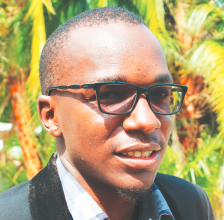What is your best thinking time?
I have two friends from Africa who once worked at a top electronic engineering company in the UK some 10 years ago. They were attached to the research department—exploring technology that could be deployed in future products that the company would sell to customers. At the time, I was a research student and they were like my mentors and my role models, as they had gone through the research programme that I was pursuing at the time. In interacting with them, I learnt a lot about what they were doing in ‘industry’. I was struck by one idea. They told me that at their company, all researchers were given a full day on Friday to THINK—blue sky thinking! Blue sky thinking is where you think without limits, almost de-touched from the present life. In their particular case, they were thinking deep into the far future—about what technology would be like in 10 or even 20 and 30 years’ time!
If a busy company like the international electronics company these friends were working for would spare a whole Friday every week for all their researchers to ‘do no work’ but to only think, then thinking must be very important. If thinking is very important for such big international companies then it must be good at a personal level too. How often do you think? Do you also have your regular thinking slot? Have you optimised the timing and location for your thinking to produce the best quality thinking that you can ever achieve?
For me, it is clear. I have three best thinking times. First is when I am on a long drive alone or with family but family is tired or asleep in the car. In particular, I enjoy thinking when driving between Blantyre and Lilongwe and also to Mzuzu, or any other long stretch. Another good time I find for thinking is when taking shower! The third best thinking time for me is when I attend live music show. When I listen to the live music that I really love and enjoy, that is when I have some of my quality thinking. What about you, when is your best thinking time?
In his article on “The scientifically proven best time to think and write creatively”, Neil Patel argues that the best time to think is when one is disrupted. Apparently, when we are distracted that is when we see more opportunities and then we make connections. Perhaps that explains why in loud live music I get good thinking! Or when driving, I get to see people walking around, crossing the road, goats and cattle, not to mention the hundreds if not thousands of cars that I get past! I would have expected that my best time to think should be in a quiet place where I am alone, but that is not really the case! In fact, Neil lists the best thinking moments in general as follows: showering, driving, running and dreaming!
Probably you already know your best thinking time. In that case, this article reinforces what you already know. However, if you hadn’t already identify your best thinking time, then today you have that opportunity to think through this and resolve to identify with your best moments for thinking. Either way, you now know that you need to use your best thinking time so that you can save your best thinking ideas for the best thinking moments and places so that you can optimise the quality of your thinking on your most important topics.
Once you optimise your time and place for thinking, you will be on the course towards optimising your problem solving as well as your innovation. Now is the time for you to achieve this major milestone in life. Good luck as you think through optimising your thinking! n






I have personally respect for Dr Mtumbuka. He is certainly my model. His articles do not only inspire but also profoundly provide practical solutions to day to day problems. I suggest that if this article about blue sky thinking be embraced by Malawians, our country would not only be economically great but also a model in Africa and beyond. As such, to say ‘Malawi is warm heart of Africa’ would be meaningful. All what we need is to change our thinking at the expense of achieving self motives in which plundering public resources ensue.
Once again, Dr Mtumbuka you deserve my heartfelt thanks for the article and all articles I have read.